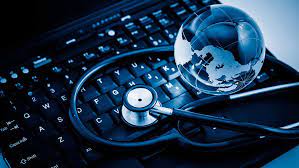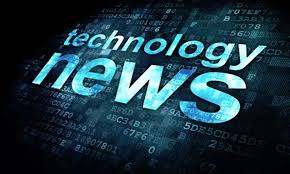
Transforming Healthcare Through Innovative Health Information Technology Solutions
The Role of Health Information Technology in Modern Healthcare
Health Information Technology (HIT) has revolutionized the way healthcare is delivered, managed, and experienced. From electronic health records to telemedicine, HIT plays a crucial role in improving patient care, enhancing efficiency, and advancing medical research.
Electronic Health Records (EHR)
One of the key components of HIT is Electronic Health Records (EHR), which allow healthcare providers to access and share patient information securely. EHRs streamline the documentation process, reduce errors, and enable better coordination of care among different providers.
Telemedicine
Telemedicine leverages technology to provide remote healthcare services, such as virtual consultations and monitoring. This allows patients to receive care from anywhere, breaking down geographical barriers and increasing access to medical expertise.
Health Apps and Wearable Devices
With the rise of health apps and wearable devices, individuals can now track their health metrics in real-time. These tools empower patients to take control of their well-being by monitoring their activity levels, vital signs, and medication adherence.
Data Analytics and Research
HIT enables healthcare organizations to collect vast amounts of data on patient outcomes, treatment effectiveness, and population health trends. By utilizing data analytics tools, researchers can identify patterns, predict disease outbreaks, and develop personalized treatment plans.
Cybersecurity Challenges
As HIT becomes more prevalent in healthcare settings, cybersecurity threats pose a significant risk to patient privacy and data security. Healthcare organizations must invest in robust cybersecurity measures to safeguard sensitive information from cyber attacks.
The Future of Health Information Technology
Looking ahead, the integration of artificial intelligence (AI), machine learning, and blockchain technology holds immense potential for transforming healthcare delivery. These innovations promise to enhance diagnostic accuracy, personalize treatment options, and improve operational efficiency within healthcare systems.
9 Essential Strategies for Enhancing Your Health Information Technology Systems
- Ensure data security and privacy measures are in place.
- Regularly update software and systems to protect against cyber threats.
- Train staff on how to properly use health IT systems for maximum efficiency.
- Utilize electronic health records (EHRs) to improve patient care coordination.
- Implement telemedicine services for remote patient consultations.
- Integrate mobile health apps for better patient engagement and monitoring.
- Adopt interoperable systems to enable seamless data exchange between healthcare providers.
- Conduct regular risk assessments to identify vulnerabilities in your IT infrastructure.
- Stay informed about the latest trends and advancements in health information technology.
Ensure data security and privacy measures are in place.
Ensuring data security and privacy measures are in place is paramount when leveraging health information technology (HIT) in healthcare settings. Safeguarding sensitive patient information from unauthorized access, breaches, and cyber threats is essential to maintaining trust and compliance with regulations such as HIPAA. Implementing robust encryption protocols, access controls, and regular security audits can help mitigate risks and protect the confidentiality of patient data. By prioritizing data security and privacy, healthcare organizations can instill confidence in patients, foster a culture of trust, and uphold the integrity of their HIT systems.
Regularly update software and systems to protect against cyber threats.
Regularly updating software and systems is a critical tip in safeguarding health information technology against cyber threats. By staying current with the latest security patches and updates, healthcare organizations can mitigate vulnerabilities that cybercriminals may exploit. This proactive approach not only helps protect sensitive patient data but also ensures the integrity and reliability of health information systems. Prioritizing regular updates is essential in maintaining a secure digital infrastructure that upholds patient privacy and trust in the healthcare industry.
Train staff on how to properly use health IT systems for maximum efficiency.
Training staff on how to effectively utilize health information technology (IT) systems is essential for maximizing efficiency and optimizing patient care. By providing comprehensive training programs, healthcare organizations can ensure that their staff are proficient in navigating electronic health records, telemedicine platforms, and other IT tools. Proper training not only enhances the accuracy and speed of data entry but also promotes seamless communication among healthcare team members. Investing in staff education on health IT systems ultimately leads to improved workflow, better patient outcomes, and a more streamlined healthcare delivery process.
Utilize electronic health records (EHRs) to improve patient care coordination.
Utilizing electronic health records (EHRs) is a valuable tip in leveraging health information technology to enhance patient care coordination. EHRs enable healthcare providers to access comprehensive and up-to-date patient information, facilitating seamless communication and collaboration among different members of the care team. By centralizing patient data in EHR systems, healthcare professionals can make well-informed decisions, reduce errors, and ensure continuity of care across various healthcare settings. This integration of EHRs in patient care coordination not only improves efficiency but also enhances the overall quality of healthcare delivery, leading to better outcomes for patients.
Implement telemedicine services for remote patient consultations.
Implementing telemedicine services for remote patient consultations is a valuable tip in leveraging Health Information Technology to enhance healthcare delivery. By offering virtual consultations, healthcare providers can reach patients in remote or underserved areas, improving access to medical expertise and reducing barriers to care. Telemedicine not only increases convenience for patients but also allows for efficient communication between healthcare professionals, leading to better coordination of treatment plans and improved patient outcomes. This innovative use of technology exemplifies the transformative impact that Health Information Technology can have on modern healthcare practices.
Integrate mobile health apps for better patient engagement and monitoring.
Integrating mobile health apps into healthcare practices can significantly enhance patient engagement and monitoring. These apps provide patients with convenient access to personalized health information, allowing them to actively participate in their own care management. By utilizing mobile apps, healthcare providers can remotely monitor patient data in real-time, enabling proactive interventions and personalized treatment plans. This proactive approach not only improves patient outcomes but also fosters a stronger patient-provider relationship built on communication and collaboration.
Adopt interoperable systems to enable seamless data exchange between healthcare providers.
Adopting interoperable systems in healthcare is essential for facilitating seamless data exchange between healthcare providers. By implementing interoperable technology solutions, such as Electronic Health Records (EHR) that can communicate with each other, healthcare professionals can access comprehensive patient information efficiently and securely. This interoperability enhances care coordination, reduces duplication of tests and procedures, and ultimately leads to better outcomes for patients. Embracing interoperable systems in health information technology is a crucial step towards improving the quality and efficiency of healthcare delivery across various medical settings.
Conduct regular risk assessments to identify vulnerabilities in your IT infrastructure.
It is crucial for healthcare organizations to conduct regular risk assessments to identify vulnerabilities in their IT infrastructure. By proactively assessing potential risks, such as cybersecurity threats or data breaches, healthcare providers can strengthen their security measures and protect sensitive patient information. Regular risk assessments help ensure the integrity and confidentiality of health data, ultimately safeguarding the trust and well-being of patients.
Stay informed about the latest trends and advancements in health information technology.
Staying informed about the latest trends and advancements in health information technology is crucial for both healthcare professionals and patients. By keeping abreast of new developments in HIT, individuals can leverage cutting-edge tools and strategies to enhance patient care, streamline processes, and improve health outcomes. Whether it’s learning about innovative EHR systems, telemedicine platforms, or wearable devices, staying informed empowers individuals to make informed decisions and embrace the benefits of technology in healthcare.



